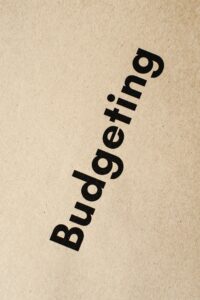Liabilities: what they are

Written by R. A. Stewart
A liability is when you have a debt to pay. You are responsible for that debt until it is paid. The opposite of a liability is an asset. It is something which provides some kind of value to you.
An example of a liability is when you have borrowed money from a finance company to purchase a car. You pay a certain amount to the finance company each week or fortnightly. It is a liability because it takes money out of your pocket and reduces your wealth.
An example of an asset is an investment with a finance company which lends out money to car buyers. This is an asset because it puts money into your pocket and increases your wealth.
Borrowing money is not the only type of liability which can reduce your wealth.
Others can be, keeping pets, smoking, drug taking, drinking, hobbies, and so forth.
Have you ever heard of dog owners spending thousands of dollars on vet bills when for just $50 they could have had their pet pooch put down. I know of some people who have spent $1,000 on a vet bill for their cat. If that is not financial stupidity I don’t know what is.
Emotional spending is very costly in the long term.
Borrowing for something which does not give you anything in return is a drain on your future financial welfare. Paying for a holiday is a perfect example. This is something you can do without. If you don’t have the money you don’t go on holiday. It’s as simple as that.
Hobbies can be expensive; have you ever seen those news items on television where some collectors have spent thousands of dollars on their items. Whether it is a doll collector, model train collector, or whatever, these people spare no expense in getting their hands on the next item to add to their list.

Becoming an investor rather than a consumer will help you to be better off financially in the long run. By minimizing your consumer purchases and investing that money instead you will build up an investment portfolio, whether that be in the share market, property, and the like. Stuff doesn’t last long and it loses its value over time.
Investing in yourself will pay dividends in the long run if you apply what you have learned. It is just a matter of applying whatever is applicable to your own life. There is a lot of investment advice on the internet and in books but not everything you read will be applicable to your personal circumstances. Having the ability to discern which advice to follow takes experience.
What you spend your money on today will have an effect on your future lifestyle. It is all about making the right choices in life. Politicians talk a lot about achieving different outcomes for certain groups of people. Personally, I think that it is choices which people need to take responsibility for because the only reason why there are so many different outcomes is because people make different choices.
About this article
This article is of the opinion of the writer and may not be applicable to your own personal circumstances therefore, discretion is advised. You may use this article for content for your website, blog, or ebook.
Www.robertastewart.com




















